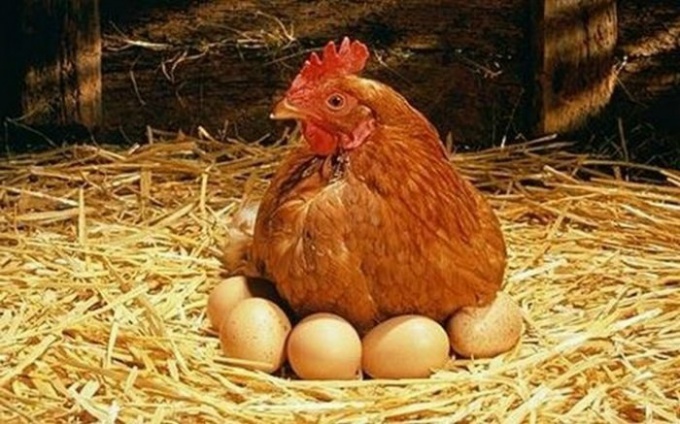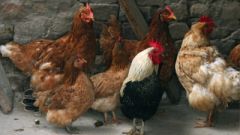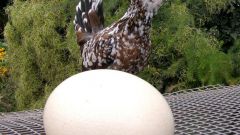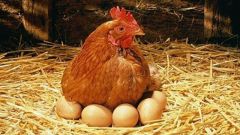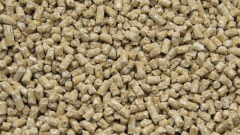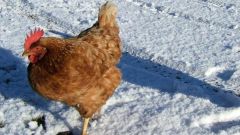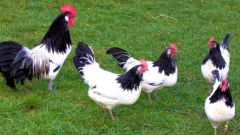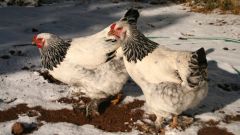In breeding hens it is necessary to know the basic rules, one of which is feeding the birds. This largely depends on how much your chicken will bring eggs per year. High egg production of chickens comes from about 26 to 49 weeks of age. Age plays a significant role in the choice of food birds.
HH at any age should be fed evenly and regularly, avoiding overfeeding or neocartilage. It is desirable to feed the birds at the same time 2-3 times a day. The morning feeding is best done immediately after waking up the chickens. In the evening the birds are fed an hour before she starts perching on the roost.
In the diet for young hens to add more nutrients than the old. Morning is preferable to prepare the feed of wet mash, and in the evening give whole grain. It is better to diversify and not to give any one. The amount of fodder should be such that the chicken is able to eat in 30-40 minutes. Otherwise, there will be acidification of the product. Remove uneaten food to prevent mold.
Summer food of chickens-laying hens is somewhat different from the winter. At this time a significant portion of feed is fresh and green. It is possible to give finely chopped watermelon rinds. From their eggs taste better. Regularly cut nettles.
Winter feed with the addition of mash give less than in summer. This time of year, they are preparing for a warm meat or fish broth and can be cooked on a preheated serum. Part of the feed grains it is recommended to give sprouted. This grain should be soaked in warm water and spread a thin layer on a cloth in a warm room. In a few days sprouts will appear.
Feed for laying hens should contain fats, proteins, carbohydrates, vitamins and mineral salts. If the power is fairly balanced, the poultry egg production would increase. A big role in this play and ready-mixed feeds for chickens-laying hens. Per day estimated consumption of feed per bird is 120 grams. For the preparation of feed for laying hens using legumes, cereals, fish and meat and bone meal, vegetables, bran, cheese and milk, chalk, feed phosphates, salt, gravel and sand. To increase egg production per 1 kg of feed add flour 30 g of yeast diluted in warm water. We must not forget about drinking water. And in the morning it is recommended to give the hens a weak solution of potassium permanganate. To do this, use any utensils other than metal.
A sample diet for one hen following. A mixture of flour and grain, 50 g; vegetables - no more than 50 g; protein dry food - 15 g; crushed shell - 5 g; bone meal, 2 g; salt - 0.5 g; greens - 30 g
How to feed laying hens
HH at any age should be fed evenly and regularly, avoiding overfeeding or neocartilage. It is desirable to feed the birds at the same time 2-3 times a day. The morning feeding is best done immediately after waking up the chickens. In the evening the birds are fed an hour before she starts perching on the roost.
In the diet for young hens to add more nutrients than the old. Morning is preferable to prepare the feed of wet mash, and in the evening give whole grain. It is better to diversify and not to give any one. The amount of fodder should be such that the chicken is able to eat in 30-40 minutes. Otherwise, there will be acidification of the product. Remove uneaten food to prevent mold.
Summer food of chickens-laying hens is somewhat different from the winter. At this time a significant portion of feed is fresh and green. It is possible to give finely chopped watermelon rinds. From their eggs taste better. Regularly cut nettles.
Winter feed with the addition of mash give less than in summer. This time of year, they are preparing for a warm meat or fish broth and can be cooked on a preheated serum. Part of the feed grains it is recommended to give sprouted. This grain should be soaked in warm water and spread a thin layer on a cloth in a warm room. In a few days sprouts will appear.
Products included in the feed of laying hens
Feed for laying hens should contain fats, proteins, carbohydrates, vitamins and mineral salts. If the power is fairly balanced, the poultry egg production would increase. A big role in this play and ready-mixed feeds for chickens-laying hens. Per day estimated consumption of feed per bird is 120 grams. For the preparation of feed for laying hens using legumes, cereals, fish and meat and bone meal, vegetables, bran, cheese and milk, chalk, feed phosphates, salt, gravel and sand. To increase egg production per 1 kg of feed add flour 30 g of yeast diluted in warm water. We must not forget about drinking water. And in the morning it is recommended to give the hens a weak solution of potassium permanganate. To do this, use any utensils other than metal.
A sample diet for one hen following. A mixture of flour and grain, 50 g; vegetables - no more than 50 g; protein dry food - 15 g; crushed shell - 5 g; bone meal, 2 g; salt - 0.5 g; greens - 30 g
